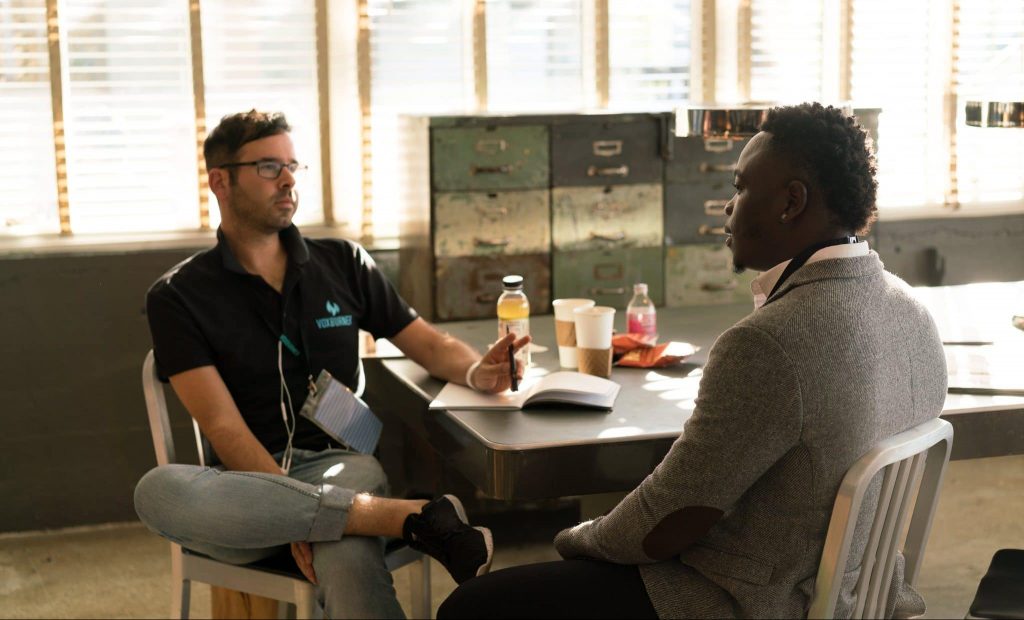Companies can no longer afford to ignore the benefits of artificial intelligence for recruiting and interview augmentation. A rapidly evolving landscape, changes in candidate expectations and touch competition are forcing organizations, big and small, to use AI power to stay relevant. And as organizations strive for efficiency, precision, and inclusivity, AI-driven methods are paving the way for a more comprehensive interview process.
In this article, we delve into the current state of AI recruiting technology, explore its implications, and present a roadmap for leveraging smart recruiting technology for delivering a comprehensive interview process.
Current Status: Artificial Intelligence for Recruiting. Popular But Not Everyone Is Doing it Right
AI-powered interview processes have become a staple in hiring strategies. The use of automated recruiting and smart recruiting tools has gained remarkable traction in recent years. According to a study conducted by Deloitte, over 70% of surveyed organizations have incorporated AI-based applications in their recruitment processes. This implies a growing inclination to leverage AI in the interview process, and by extrapolation in the final decision-making process.
However, while some surveys reveal that up to 67% of organizations utilize AI in their hiring process, only 22% have successfully integrated it across all stages. Major causes of this lag in success have been directed towards three main reasons — a hasty implementation cycle, lack of consideration of human experience, and biased algorithms that perpetuate existing inequalities in hiring. Therefore, to build a smarter recruiting process, the key lies not just in adopting AI-powered interview processes, but in conscientiously aligning it with ethical and human-centric principles.
How to Leverage Artificial Intelligence for Recruiting and Interviews
To fully harness the potential of AI in the interview process, organizations must follow a strategic approach. It does not suffice in saying that an automated recruiting flow has been set up or that the organization conducts “AI interviews.”
We suggest using a five-step process to integrate AI effectively in the interview process.
Step 1: Perform Data-Driven Candidate Profiling
Leverage AI algorithms to analyze candidate profiles and historical data to create detailed candidate personas. This will help in understanding what questions a candidate can be asked during the interview process. JobTwine’s Interview Co-pilot uses a similar concept to understand the role that a candidate is being hired for to suggest relevant questions.
Step 2: Set Strong Bias Mitigation Standards
AI can recognize and counteract unconscious biases that can creep into the interview process. Hiring leaders just need to set up specific standards that will guide the platform or tool responsible for introducing artificial intelligence for recruiting in their workflows. This will clearly mitigate the bias factor and ensure a balanced hiring cycle.
Step 3: Introduce Virtual AI Interviews
Conducting initial interviews through AI-powered virtual platforms can expedite the screening process. Automated Interview steps can be a good preliminary round to assess the hard skills of a candidate. Couple this flow with a Smart Playbook Builder to get a powerful hiring process that uses smart recruiting technology.
Step 4: Balance Hard and Soft Skill Assessment
While it is important to integrate AI-driven recruiting technology to objectively evaluate technical competencies, introducing a human element is crucial to getting the right candidate. It is only when a face-to-face interview is conducted can a comprehensive decision be reached.
However, many companies struggle to find the right expert for the job. As a result, there is an imbalance in choosing hard skills over soft ones. This leads to usually higher attrition rate as a mismatch of team culture.
JobTwine’s Interviewer-on-demand solves this issue by providing an expert panellist whenever needed. The interviewers are well-versed in using AI workflows, so training is not required. Learn more by speaking to our expert. Schedule a call today.
Step 5: Continuous Learning
Implement machine learning algorithms that continuously improve based on interview outcomes. And the more data is collected, the better the results as the usage increases. These algorithms ensure accuracy and relevance by adapting to changing job requirements and evolving candidate profiles.
Therefore, tools leveraging artificial intelligence for recruiting and smart recruiting processes are therefore a good investment.
Sentiment Regarding AI in Interviews
CHROs and top hiring executives across industries are increasingly receptive to the potential of AI in recruiting. A Harvard Business Review survey revealed that 85% of CEOs believe that AI can significantly impact their business operations, especially talent acquisition being a key focus.
This sentiment stems from the realization that AI-driven smart recruiting solutions can bring savings in time, reduce bias, and better identification of candidates that align with the company’s culture and goals.
The Future of AI in the Interview Process
The trajectory of artificial intelligence for recruiting in the interview process is undoubtedly promising. As AI technologies advance, we can expect an increase in the sophistication of the tools. For example, predictive analytics can be employed to forecast a candidate’s long-term success within the organization based on answers in the interviews.
In the coming years, AI might also drive the integration of unconventional data sources, such as social media behaviour and online presence, to build a better candidate profile. This will allow evaluators to analyse the candidate from a different angle.
Furthermore, the fusion of AI with virtual reality could simulate realistic work scenarios. This means that tools using smart recruiting workflows will provide a unique perspective on a candidate’s problem-solving abilities and teamwork skills.
The increased rise in popularity to use artificial intelligence for recruiting has ushered in a new era of innovation in talent acquisition. As CEOs recognize the transformative potential of AI, organizations are primed to leverage its power for more informed and equitable hiring decisions. Companies that understand this fast and take necessary action will leapfrog ahead of their competition.
To test how AI-power can transform your hiring process, take a JobTwine demo.



